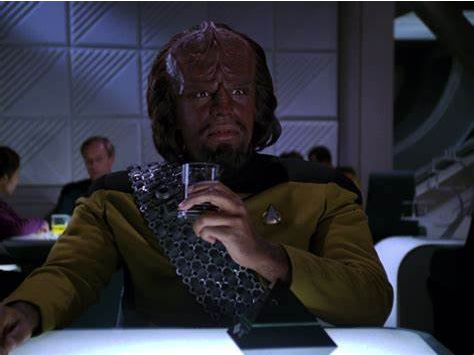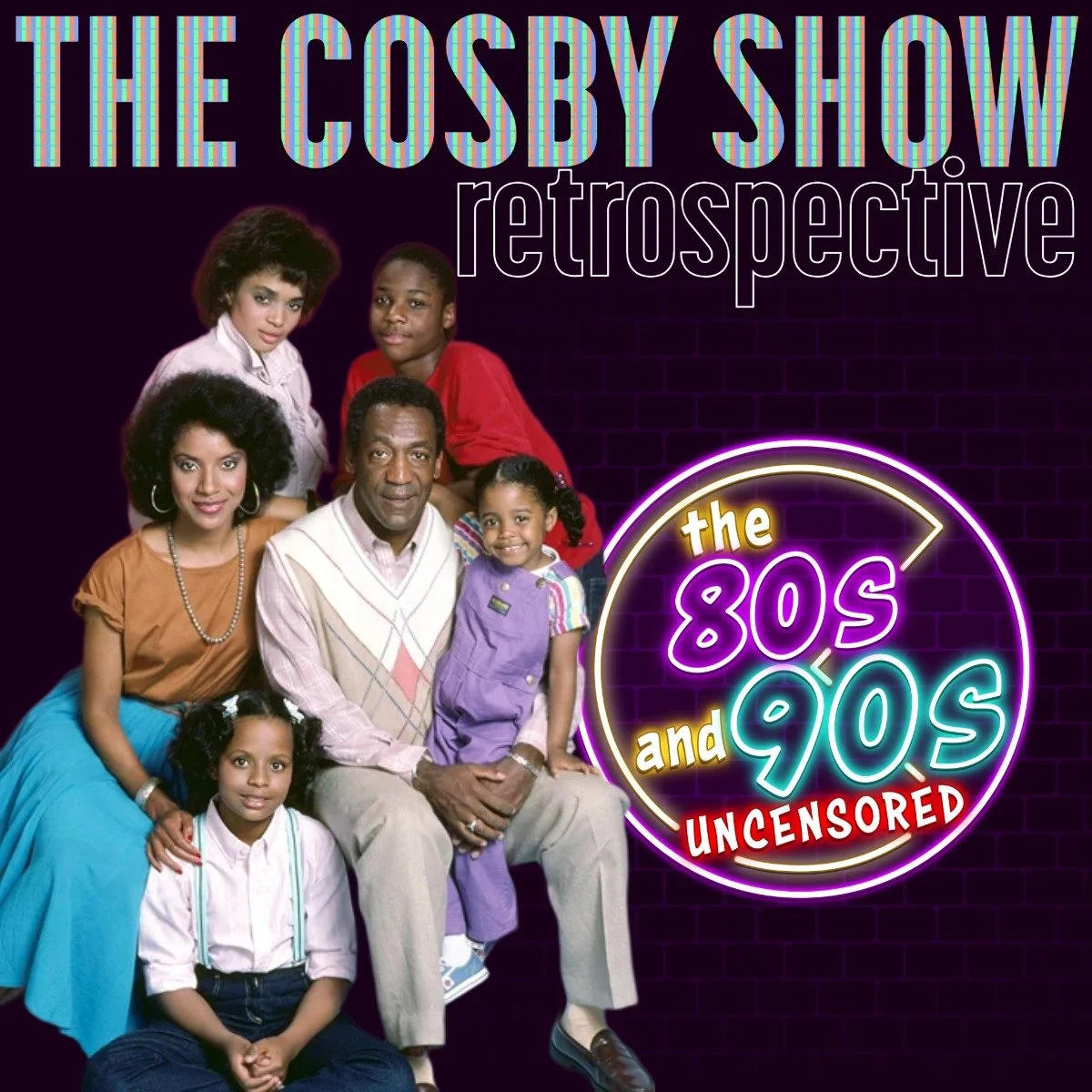Qapla'! 14 Klingon Quotes for the Workplace
Behaving like a full-blown Klingon from Star Trek in the workplace might land you in trouble. However, the honor-bound alien race does have a lot to teach about modern day business and work. Here are 14 quotes, phrases and proverb of wisdom from Klingon lore and how they apply to daily life in the office.
“Four thousand throats may be cut in one night by a running man.”
Klingon lieutenant, Star Trek: The Original Series, "Day of the Dove"
As Kang and his band of warriors attempt to gain control of the Enterprise from Kirk and crew, one of Kang’s lieutenants quotes a Klingon saying, “Four thousand throats may be cut in one night by a running man.” The modern workplace and global business environment are often described as “cutthroat”.
If you, your team or company do not have as much resources as others, this Klingon proverb reminds us that speed and efficiency can make up for a dearth in other areas. People who move fast, take calculated risks and get sh!t done can zip past the competition. This is often why startups and smaller companies can achieve so much in a shorter period of time than their larger counterparts.
As an individual contributor or manager, you can apply this wisdom as well. You may often find yourself and your team stymied by obstacles. Sometimes you just have to start running with your hegh'bat, slicing through hurdles to make things happen… figuratively of course!
Kang and his lieutenants.
“Only a fool fights in a burning house.”
Kang, Star Trek: The Original Series, “Day of the Dove”
After fighting with the Enterprise crew for control of the ship, Kang finally comes to the realization that an alien entity, like a narcistic manager, has orchestrated the conflict to feed off its negative energy. Kang sites another Klingon proverb: “Only a fool fights in a burning house.” Kang realized that, although Kirk is his enemy, they’re both being exploited by an even more menacing foe. He lay his weapons down and joins Kirk in a hardy belly laugh to ward off the alien and save the day.
Companies often do the same when they realize that another company, or the market in general, has moved against them. Mergers are often the joining of two former competitors that coalesce in order to survive.
The same can be true in the workplace. You might have a mortal enemy at work, but you may have to drop your bat'leth, and just work with someone you don’t like in order to achieve goals and meet targets. Moreover, there might be someone else in the office far more threatening to your careers than either of you are to each other. It may be difficult to attempt peace with a workplace rival you loath, but if Kang and Kirk can drop their hostilities, if only for a while, so can you.
Kang and Kirk team up.
“The wind does not respect a fool.”
Kahless, Star Trek: The Next Generation, “Rightful Heir”
When Kahless the Unforgettable, the greatest Klingon who has ever lived, seemingly returns to lead the empire into a new age, he tells the tale of a man who would not go inside the city walls during a great storm. Rather, the man bravely faced the storm head on. The man was killed. Kahless warns the Klingon Chancellor Gowron, “The wind does not respect a fool.” He further challenges, “do not stand before the wind, Gowron”.
While confidence is a valuable trait, pride in ourselves and our abilities can sometimes get the best of us. Like the winds of a storm, there are some things that are just out of our control. We can’t tranquilize a storm, but we can decide how we endure it. Constantly doing battle with storms is foolhardy. Sometimes the better course of action is to take cover within the city walls and wait it out.
Kahless returns!
“Destroying an Empire to win a war is no victory. And ending a battle to save an Empire is no defeat.”
Kahless (quoted by Worf), Star Trek: Deep Space Nine, “Way of the Warrior”
The wisdom of Kahless is often quoted by Klingons, and no one quotes more appropriately than Worf, Son of Mogh. When overzealous Klingons turn on their Federation allies and attack Deep Space Nine, they are surprised by the preparation and armament of the station which defends itself admirably. The station’s shields hold, and Klingon boarding parties contained. With reinforcements on the way, Worf reminds the attacking Gowron that, “Destroying an Empire to win a war is no victory. And ending a battle to save an Empire is no defeat.” The Chancelor agrees and withdraws his forces to fight another day.
In company and individual work life, driving hard and spending resources for an endeavor (especially a “pet project”) may not be worth the damage it does to the team and its members. Sometimes we just have to admit that, although having the best intentions, we were wrong, or circumstances have changed. There are times when doubling down erroneously only sinks us deeper into a bad hole. In order to save our empire, we may have to end our battle and move on. This is not defeat. This is prudence and requires even more bravery than fighting for a Pyrrhic victory.
Worf brings knowledge to DS9.
“A leader is judged not by the length of his reign but by the decisions he makes.”
Kahless (quoted by Worf), Star Trek: Deep Space Nine, “Tacking into the Wind”
The Klingons reinstitute their alliance with the Federation in order to stand against an even greater enemy: The Dominion. However, to discredit who he views as a rival, Chencellor Gowron orders General Martok to conduct reckless, dangerous and unrealistic missions. Appropriately quoting the great Kahless again, Worf says, “A leader is judged not by the length of his reign but by the decisions he makes.”
There are so many so-called “leaders” in their positions because of mere tenure or nepotism. Their protected status often prompts them to make decisions for their own benefit without regard for others. However, I believe that these “leaders” are eventually judged by their decisions at some point. They are either ousted or put aside where they can’t cause as much damage. Those who do manage to reign until they’re dead or retire are cursed with a tarnished legacy.
Ultimately, it doesn’t matter how long someone has been around, but the actions they’ve taken that define them.
Worf is tired of Gowron’s bullsh!t.
“Great men do not seek power; it is thrust upon them.”
Kahless (quoted by Worf), Star Trek: Deep Space Nine, “Tacking into the Wind”
Worf finally had enough of Gowron’s dangerous, self-seeking shenanigans and challenges the Chancellor to a duel to the death. After an intense battle, Worf kills Gowron and is declared by the High Counsel to be the new Chancellor. However, Worf demands that the honorable and capable Martok take power as leader of the empire. The General makes clear that he did not ask for the position to which Worf replies, “Great men do not seek power; it is thrust upon them.”
Mr. Worf had the wisdom and humility to know that General Martok was the best Klingon for the job, even if he didn’t seek the power. What often goes unrecognized in organizations is that those who do not seek the power of leadership are often the best candidates to be leaders. These people are not clouded by their own ego and ambitions. Rather, they are often concerned with doing the right thing for their teams, companies and customers.
One of the biggest plagues in the modern work environment is that there are too many Gowrons and not enough Martoks.
Martok is than man for the job.
“Less talk, more synthohol. We came here to relax!”
Worf, Star Trek: The Next Generation, “The Outcast”
While Mr. Worf is adept at quoting Kahless, he has a number of notable phrases of his own. Worf also knows how to do happy hour. When he is in the Ten Forward lounge with Geordi and Data, they are still geeking out about work, trying to figure out how a newly found alien component functions. Frustrated, Worf scolds, “Less talk, more synthohol. We came here to relax!”
How many times have you gone out with work friends and colleagues to an after-work happy hour or dinner, only for everyone to talk about work the whole time. If they wanted to talk about work, why not just stay at work? The point of social gatherings outside of work is to get to know each other better personally. As hard working and dutiful as Klingons may be, they are the best in the galaxy for enjoying themselves after work.
When you’re in social gatherings with colleagues, ask about their hobbies or interests. There’s always that one person who can’t help talking about work. Divert the conversation back to keep things social or ignore this person all together. Afterall, getting to know colleagues or clients on a more personal level builds meaningful working relationships. Be more like Mr. Worf at happy hour. Relax!
Less talk, more synthohol!
“A warrior does not let a friend face danger alone.”
Worf, Star Trek: The Next Generation, “The Outcast”
When Commander Riker suddenly and uncharacteristically falls in love with an androgenous alien who leans female, he hatches a plan to save “her” from forced conversion therapy. Surmising Riker’s intentions, the ever-loyal Worf risks his own career to help Riker with his mission stating, “A warrior does not let a friend face danger alone.”
We can take this Klingon mentality and bring it into our life working in teams. When a teammate, manager or client faces challenges, don’t let them face it alone! Showing loyalty and helping your colleagues face difficult endeavors will not only make you a valuable team player, but they may someday return the sentiment when you are facing obstacles in your own tough missions. Afterall, Riker was the first friend Worf called upon to help him commit hegh'bat, right?
Riker and Worf face dangers together.
“Thinking about what you can’t control only wastes energy and creates its own enemy.”
Worf, Star Trek: The Next Generation, “Coming of Age”
The wind does not respect a fool, because the fool cannot control the wind. Wise Klingons realize this. Young Welsey Crusher is about to take his exam for Starfleet Academy. Although academically prepared, Wesley admits to Worf that he is concerned about the “psych test” because he does not know what it entails. Wesley is worried because he feels completely unprepared for it as it cannot be known to him until it happens. Worf replies, “Thinking about what you can’t control only wastes energy and creates its own enemy.” Afterall, part of being a Starfleet officer is dealing with the unknown. It’s a big part of the job.
The unknown and uncontrollable are also a common realism for most knowledge workers and managers who deal with complexity. The best manager I ever had took Worf’s wisdom to heart. He constantly iterated that his teams focus hard on the things that were within our control and do our best to mitigate for risks. Energy focused on anything else is only a waste of time and energy.
Worf and Wesley discuss fear of the unknown.
“Klingons do not procrastinate. It is a tactical delay.”
Worf, Star Trek: The Next Generation, “Liaisons”
As a delegation of diplomats from a newly contacted planet is set to arrive, Worf fiddles with his dress uniform sash in front of the mirror. Knowing Worf is not a fan of formal functions, Riker accuses him of procrastinating. Worf replies, “Klingons do not procrastinate. It is a tactical delay.”
While Mr. Worf is indeed probably procrastinating, the concept of tactical delay is an important one. I’ve counseled colleagues to delay in certain cases. While many ambitious people often act quickly, sometimes delaying action, or even inaction, is the wiser course. Think about times you’ve sent email replies too quickly and wished you had set the message up for a delayed send. There are also times when just observing and letting others work through problems is far more effective than convoluting the issue with your immediate responses. Tactical delays can also buy essential time and are a highly effective negotiation tactic.
As assertive and action oriented as Klingons are, they also think about when to take an action.
Worf does not like formal functions.
“If there is nothing to lose, no sacrifice, then there is nothing to gain.”
Worf, Star Trek: The Next Generation, “Peak Performance”
When Riker accosts Worf to join his crew on an 80-year-old ship for a battle exercise that’s nearly impossible to win, Worf is initially uninterested. He views the exercise as a waste time stating, “If there is nothing to lose, no sacrifice, then there is nothing to gain.” Although Worf ends up helping Riker for pride and for friendship, Mr. Worf was not wrong to be hesitant and question the value.
I’ve been surprised throughout my working life how often I’ve observed people engaged in meaningless or low-value activities. Sometime its small things, but sometimes its entire teams or groups of talented people working on projects of little overall worth. I believe this is because some individuals and managers might often gravitate toward activity that is safe, with little reward but also little to lose.
Ultimately, you’ll not get very far playing it safe with low value activity. If this is what you want, fine. However, if you want to be a badass like Worf and do something meaningful, question activities and assignments that are not worthwhile.
Worf is annoyed with low value assignments.
“If winning is not important, why keep score?”
Worf, Star Trek: The Next Generation, “11001001”
Making his rounds about the Enterprise, docked at Starbase 74, Riker meets Worf, Tasha Yar and some shipmates on their way for a game of Parrises Squares against starbase personnel. When Riker wishes them luck, Worf’s reply is assertive and determined. Riker tells him that it’s a friendly competition and he should just have fun and make friends. Mr. Worf replies, “If winning is not important, why keep score?”
Riker and Yar are unsure if Worf is joking or not, but Worf brings up a very good point. We’re often told by managers and leaders that we should have fun at work and keep everything casual. After all, it’s how you play the game that counts right? Well, not really. These same managers later freak out when projects or overdue and targets are not met. Remember, in the workplace as individuals and members of organizations, someone somewhere is always keeping score, even if it’s only your competition.
Everyone should indeed find joy in their work, have fun and make a friend or two. I wholeheartedly believe this. However, if you are getting paid, you’re being employed to try and win at something. Klingons don’t forget this, and neither should you.
You can bet your bat'leth that Worf is keeping score.
“Own the day.”
Klingon proverb, Star Trek: Voyager, “Ashes to Ashes”
Ensign Kim tells his friend Ensign Ballard, resurrected from death as an alien, that he told mourners at her funeral about her favorite Klingon saying: “Own the day”.
This is a self-explanatory phrase but an important one. Klingons own their days and so should you. There are so many circumstances and other people that try to take ownership of your day. But how much of a down payment have they put on your time? How much stock do others hold on your three-dimensional existence?
Own the day! You’re the one who got out of bed, brushed your teeth and started your life. If you have something you want to focus on and accomplish, do so. If you want to lounge around and not do much at all… do so. Anyone who tries to take ownership of your day is thieving Ferengi, and Klingons loath thieves… and Ferengi.
Klingons owning their day.
“It is a good day to die!”
Various characters, various Star Trek series
Humans are far more averse regarding the subject of death, but Klingons tend to embrace it as shown in their most famous battle cry: “Today is a good day to die!”
Owning your day becomes that much more important when you realize that it could be your last. Work hard. Play hard. Love hard. Feel things.
In human terms, a more appropriate phrase is, “Today is a good day to live”.



























Mister Wizard Don Herbert steps into a cage with Bill Nye the Science Guy. Who walks out, and who is left behind in a mess of beakers and failed experiments?